-- Exhibit–
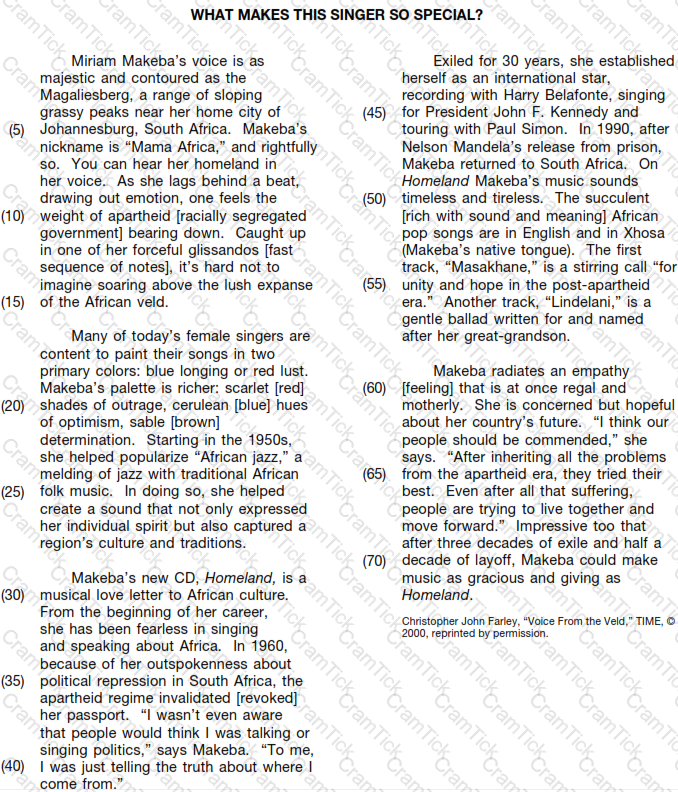
-- Exhibit --
In lines 23–25, the author states that Makeba "helped popularize ‘African jazz,’ a melding of jazz with traditional African folk music." What did Makeba do with the two different kinds of music?
-- Exhibit–
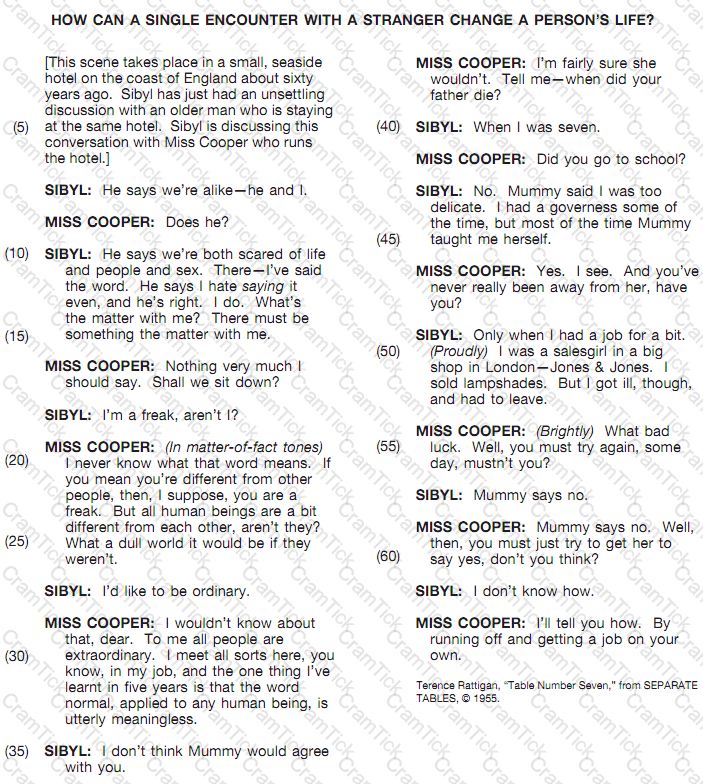
-- Exhibit --
Based on Miss Cooper’s personality as revealed in this excerpt, what profession might suit her?
-- Exhibit–
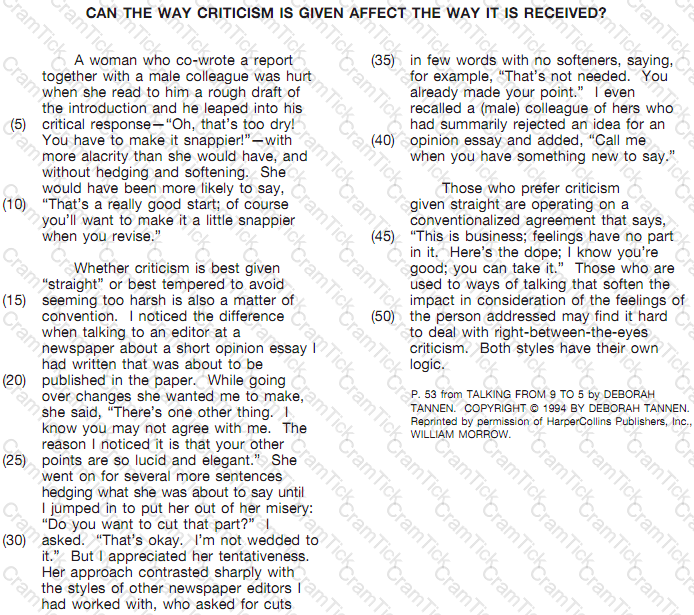
-- Exhibit --
On the basis of the passage, how would the author characterize the manner in which male and female editors offer criticism?
-- Exhibit–
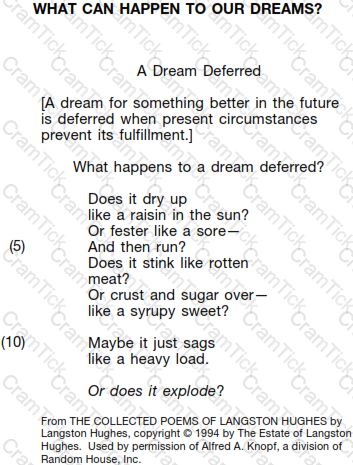
-- Exhibit --
The final comparison in the poem "Or does it explode?" (line 12) is in italics and separated from the rest of the poem. What special meaning does this treatment give the last line?
-- Exhibit–
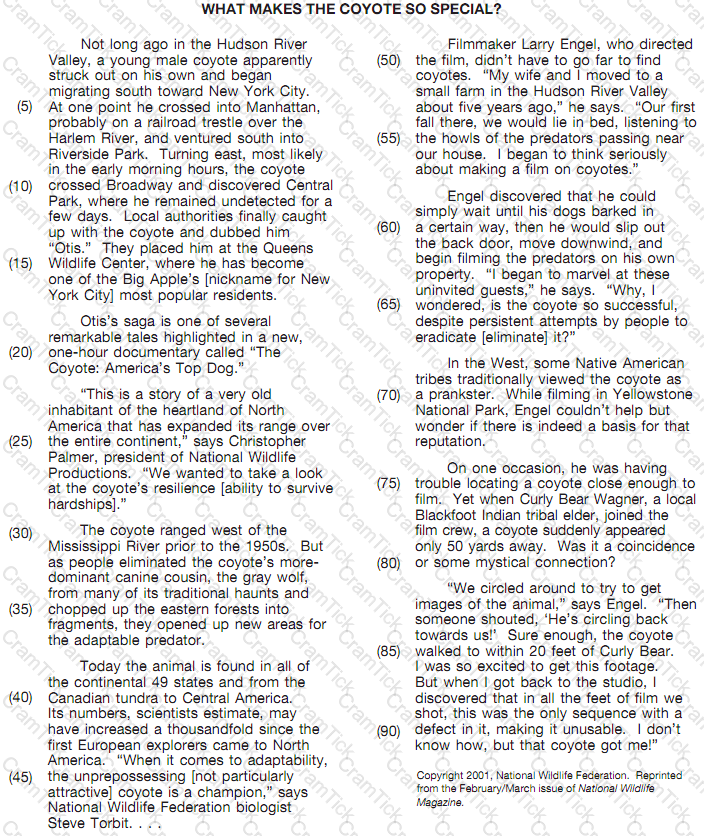
-- Exhibit --
What is suggested about Engel’s attitude toward coyotes by his statement, "I began to marvel at these uninvited guests. Why, I wondered, is the coyote so successful, despite persistent attempts by people to eradicate it" (lines 63–67)?
Exhibit:
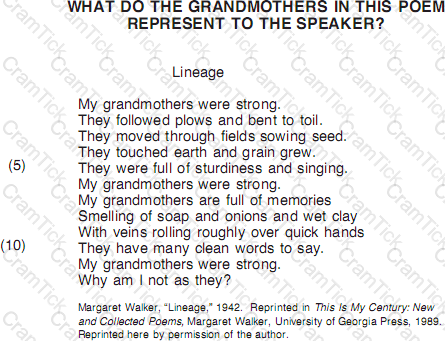
What does the description that the grandmothers “touched earth and grain grew” (line 4) emphasize about them?
-- Exhibit–
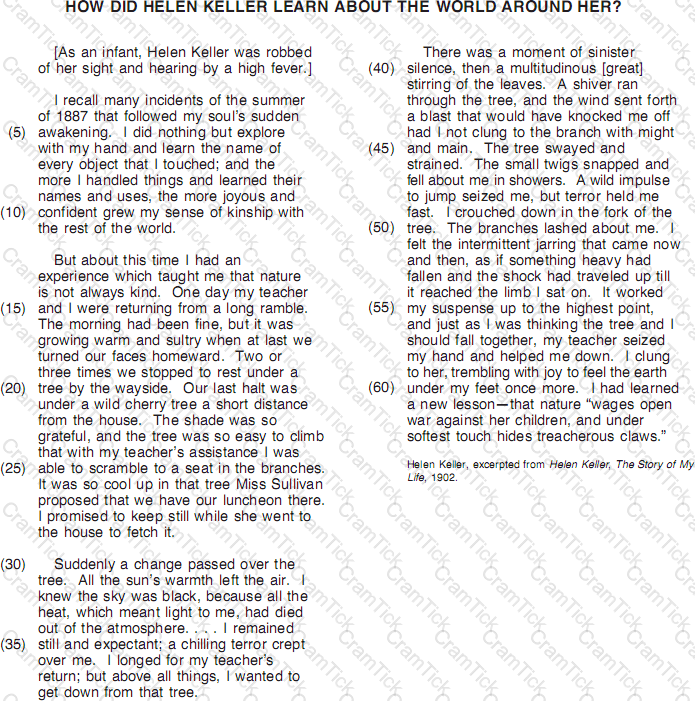
-- Exhibit --
How does Helen Keller characterize herself at the beginning of the excerpt?
-- Exhibit–
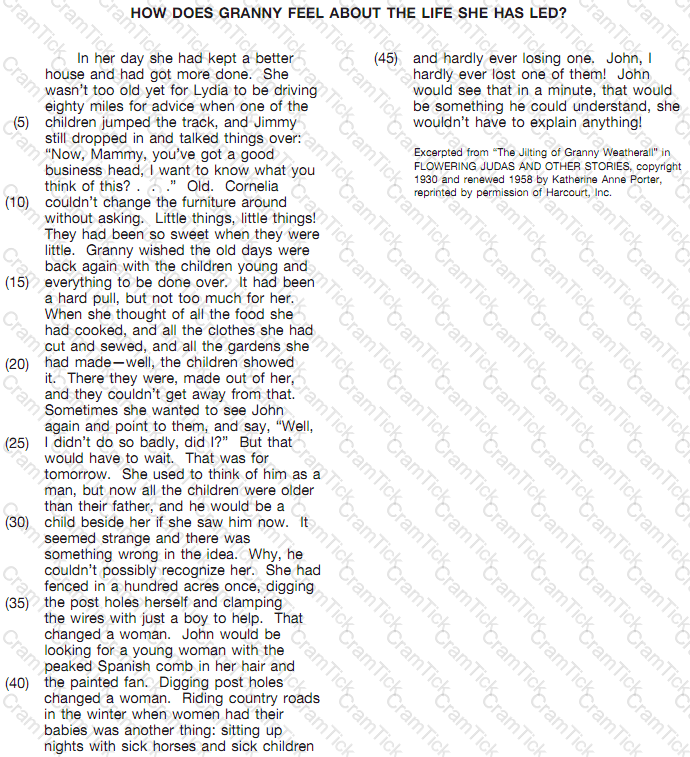
-- Exhibit --
One critic wrote of this author that "some of her [the author’s] stories . . . deal with the crises of individuals who must cope with the disappearance of order."
Based on the information in this excerpt, how does Granny’s life support this critic’s observations?
-- Exhibit–
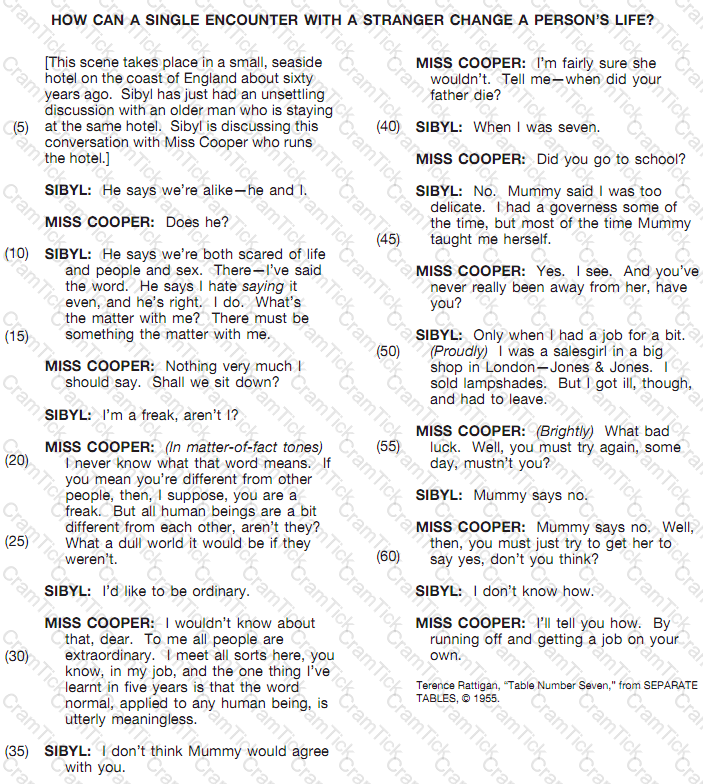
-- Exhibit–
How does Miss Cooper react to Sibyl’s protest that she is a freak?
-- Exhibit–
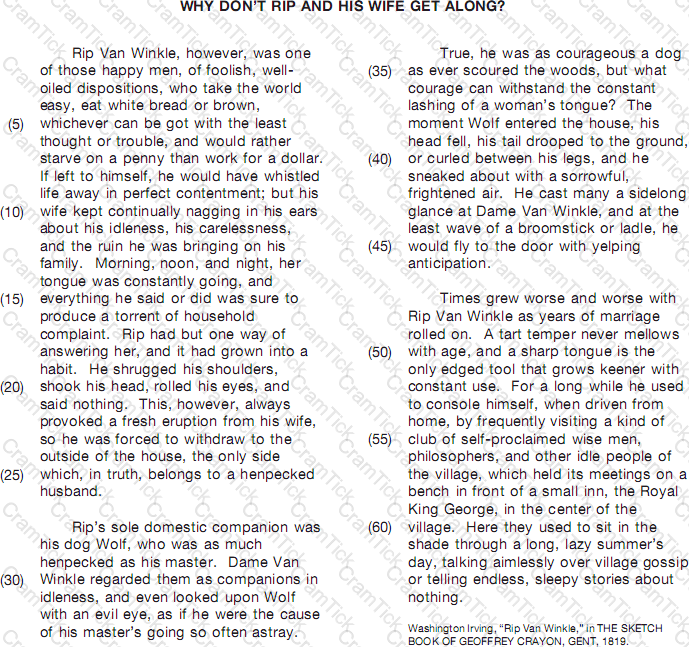
-- Exhibit --
Which phrase best describes Rip Van Winkle’s attitude toward earning a living?
-- Exhibit–
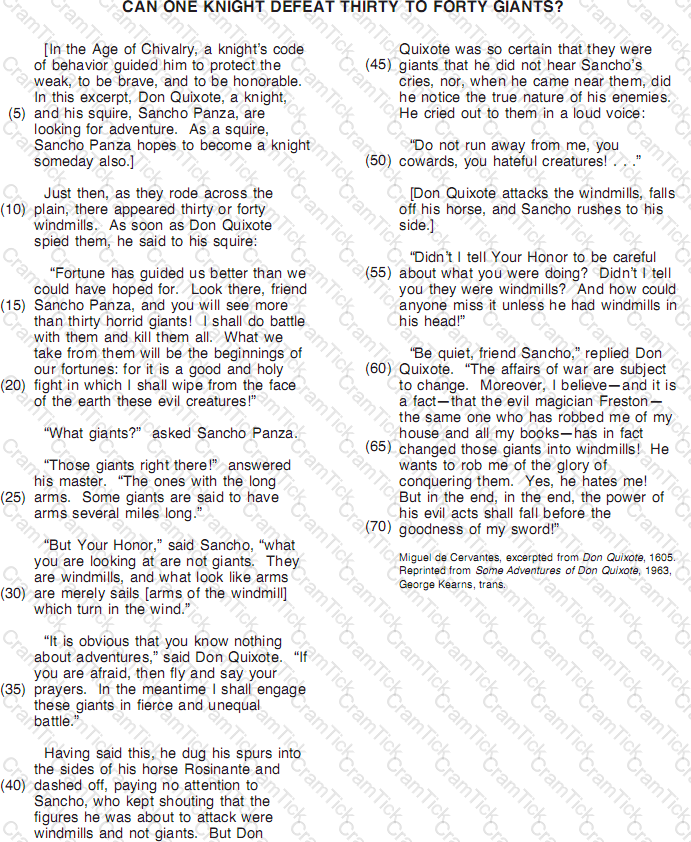
-- Exhibit --
Which one of the following techniques does the author rely on most to tell the story?
-- Exhibit–
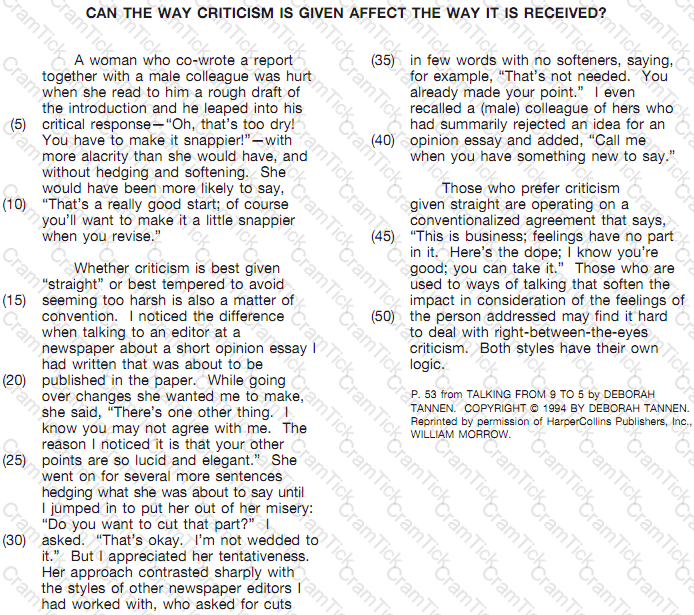
-- Exhibit --
On the basis of the passage, if the author were editing someone else’s work, what strategy of criticism would she use?
-- Exhibit–
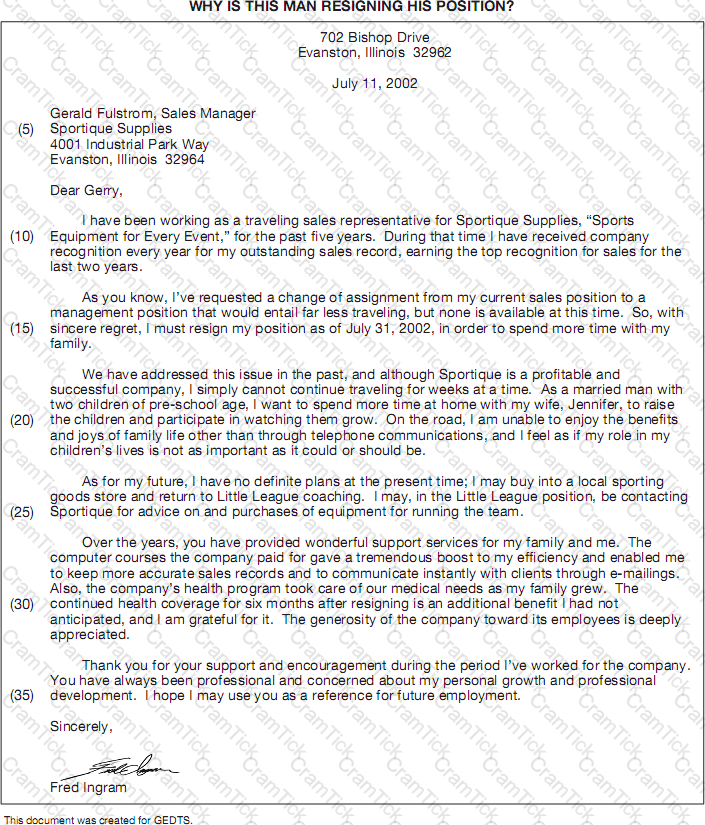
-- Exhibit --
Fred Ingram states in his letter that his role in his children’s lives “is not as important as it could or should be” (line 22).
Based on this statement, what might the reader conclude about Fred Ingram’s beliefs about rearing children?
-- Exhibit–
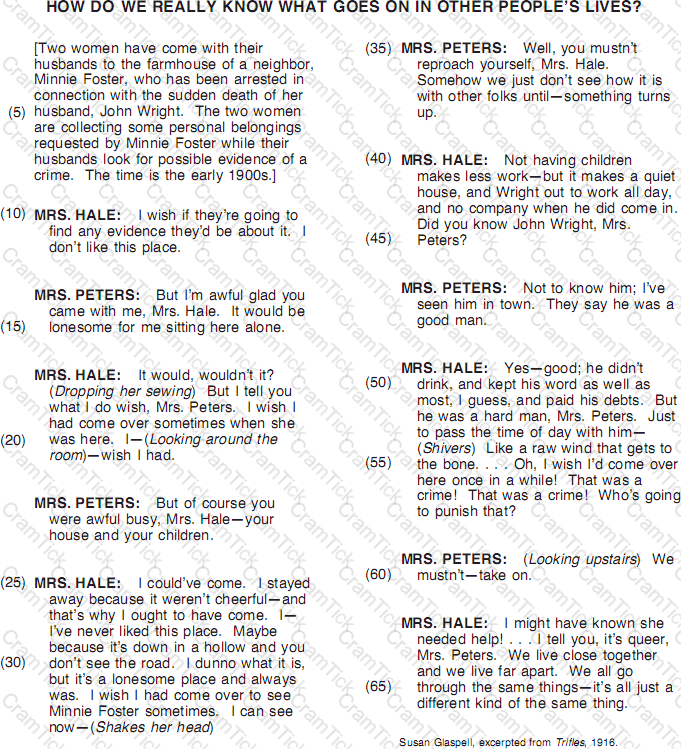
-- Exhibit --
How does Mrs. Peters react to Mrs. Hale in the excerpt?
-- Exhibit–
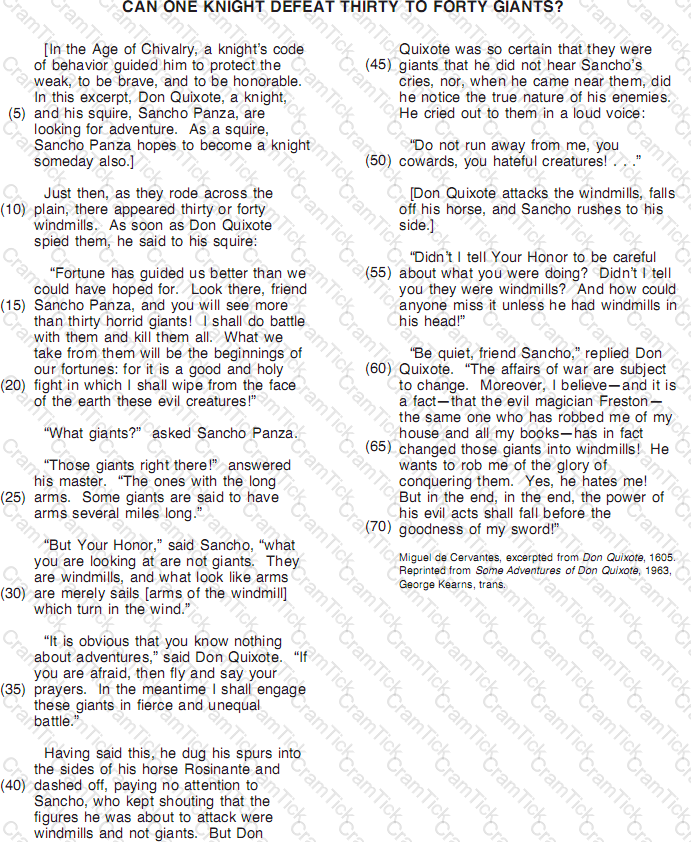
-- Exhibit --
Although Don Quixote is a somewhat comic figure, he is nevertheless characterized as a man who is devoted to duty and faithful to his sworn cause of helping others. Given this background information and the excerpt, why might readers be deeply moved by the character of Don Quixote?
-- Exhibit–
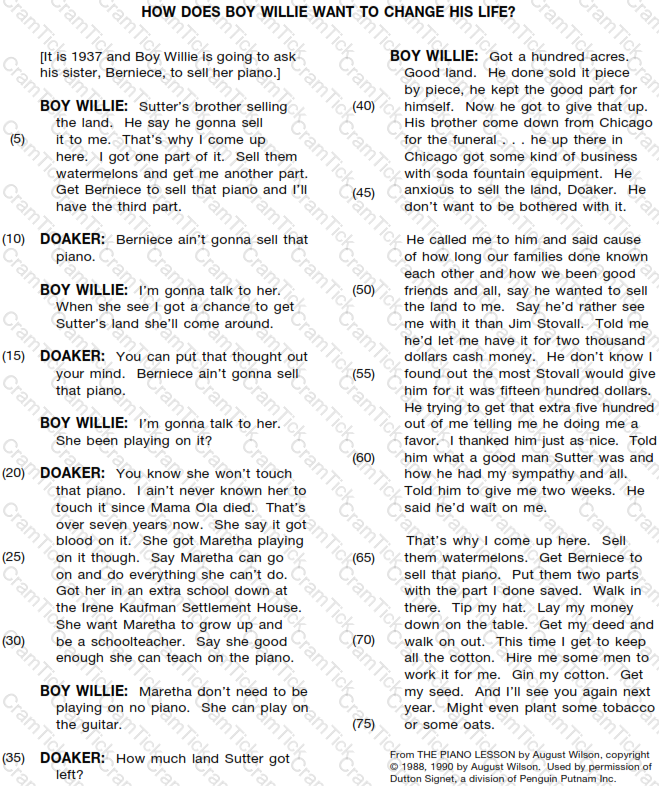
-- Exhibit --
Which statement indicates that Boy Willie realizes that Sutter’s brother is trying to swindle him?
-- Exhibit–
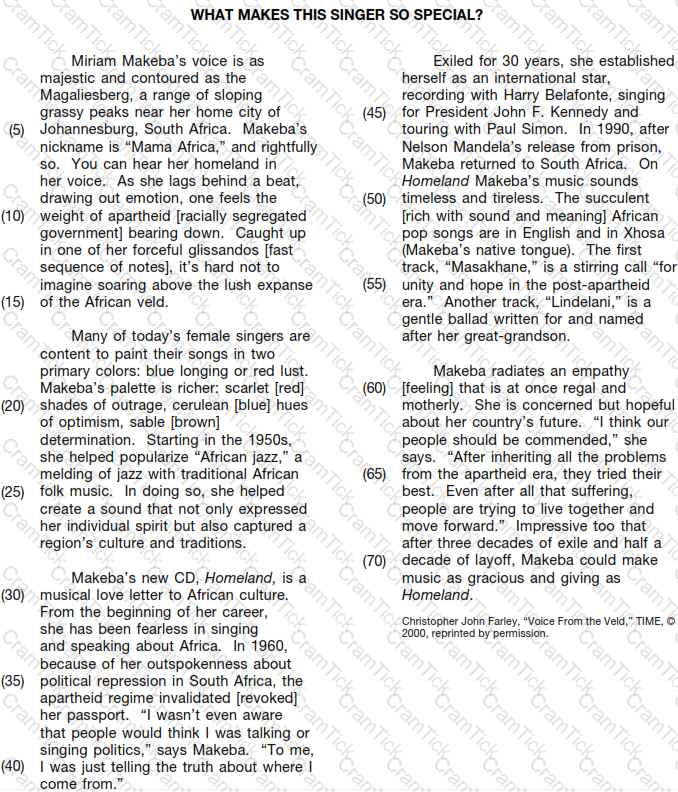
-- Exhibit --
Why is "Mama Africa" an appropriate nickname for Makeba?
-- Exhibit–
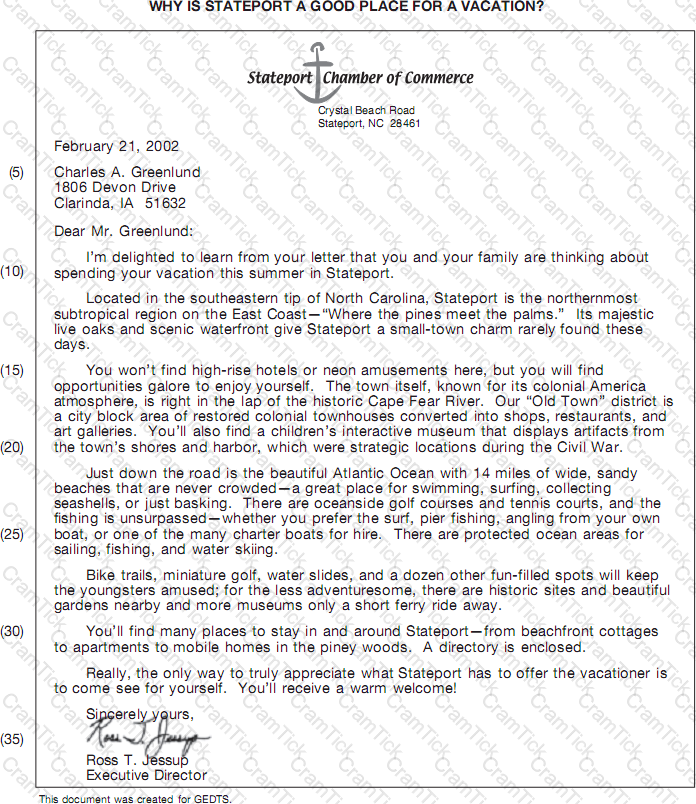
-- Exhibit --
Why does Mr. Jessup include the phrase “Where the pines meet the palms” (line 12) and put it in quotation marks?
-- Exhibit–
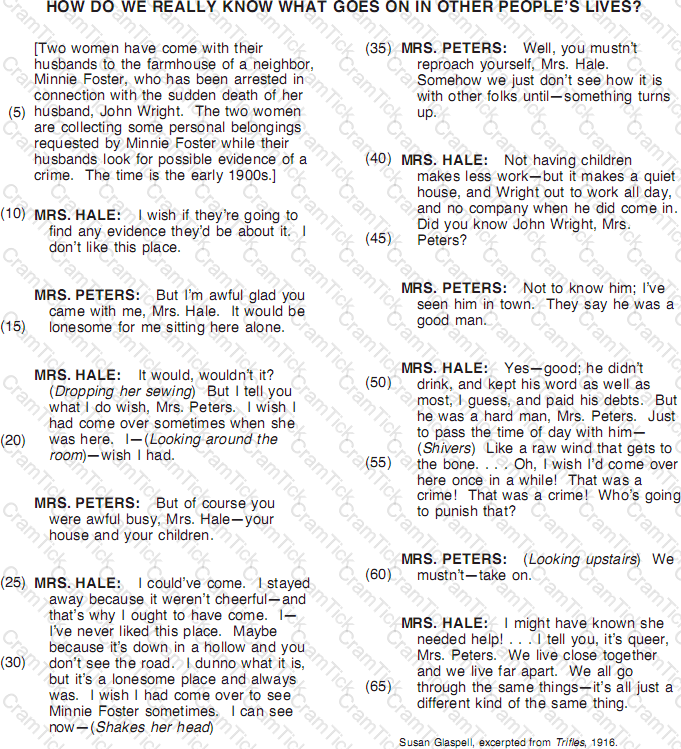
-- Exhibit --
What is the main reason Mrs. Hale has not visited this house previously?
-- Exhibit–
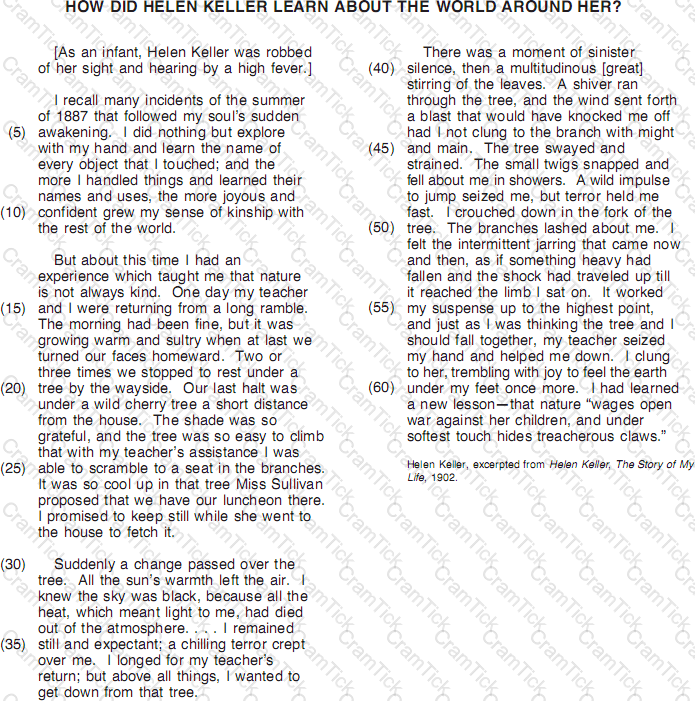
-- Exhibit --
When did Helen Keller first become aware of the approaching storm?
-- Exhibit–
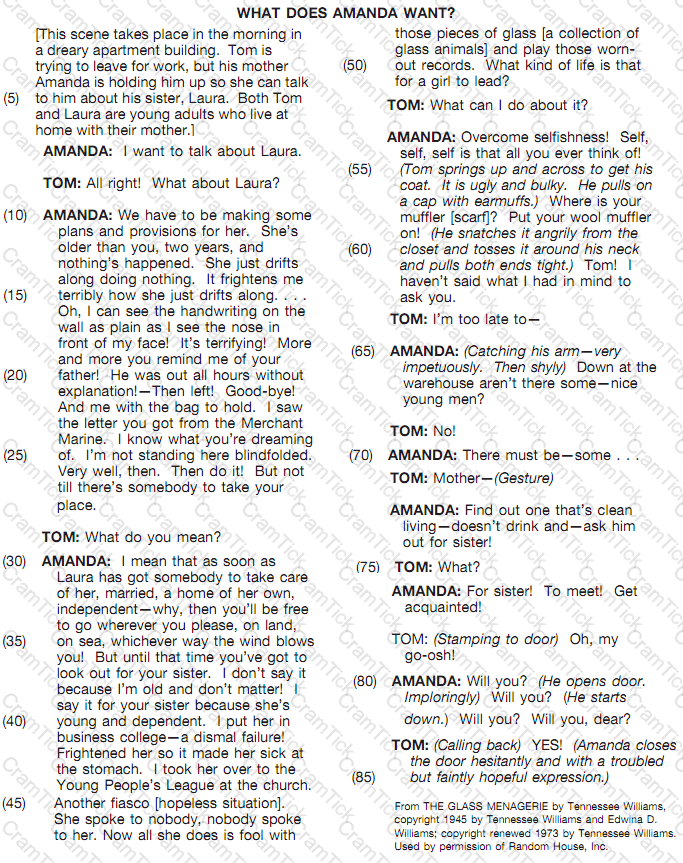
-- Exhibit --
Based on the qualities of Laura as seen in this excerpt, which of the following jobs would she be most likely to enjoy?
-- Exhibit–
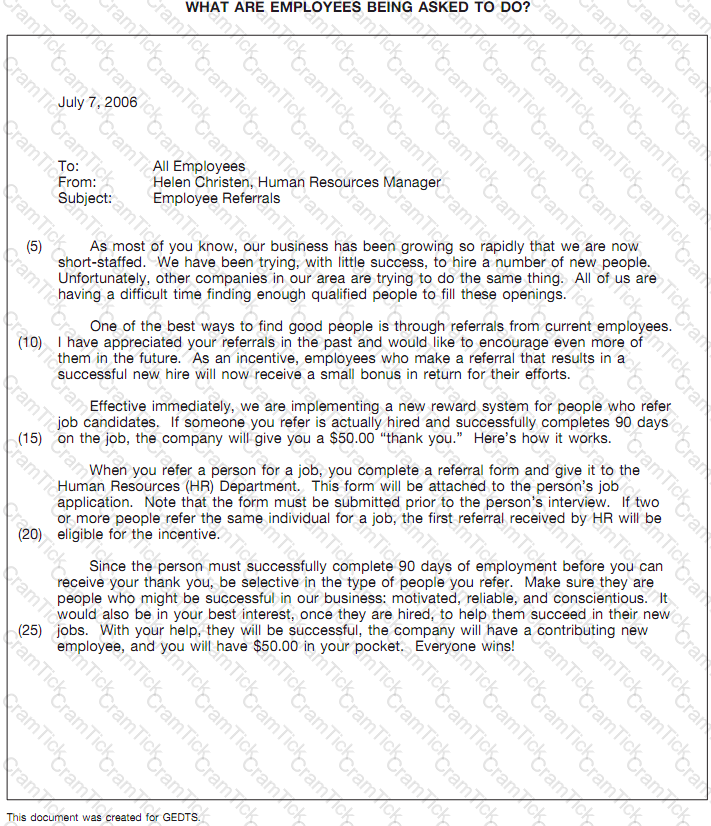
-- Exhibit --
Which employee action might help newly hired people "succeed in their new jobs" (lines 24–25)?
-- Exhibit–
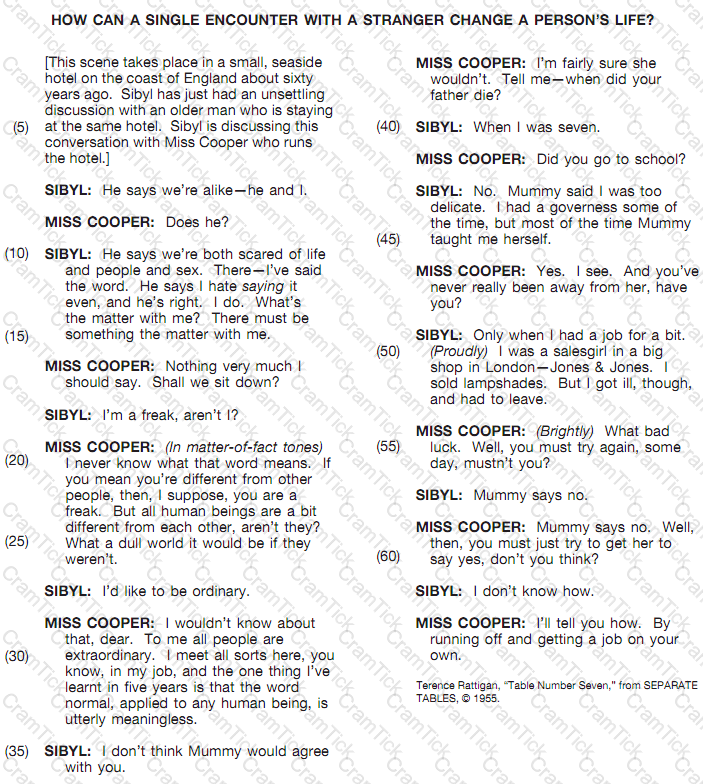
-- Exhibit --
At the end of the play, Sibyl directly disobeys her mother’s wishes and refuses to leave the dining room when her mother orders her to leave.
Although this seems like a minor event, why does the play end with this scene?
-- Exhibit–
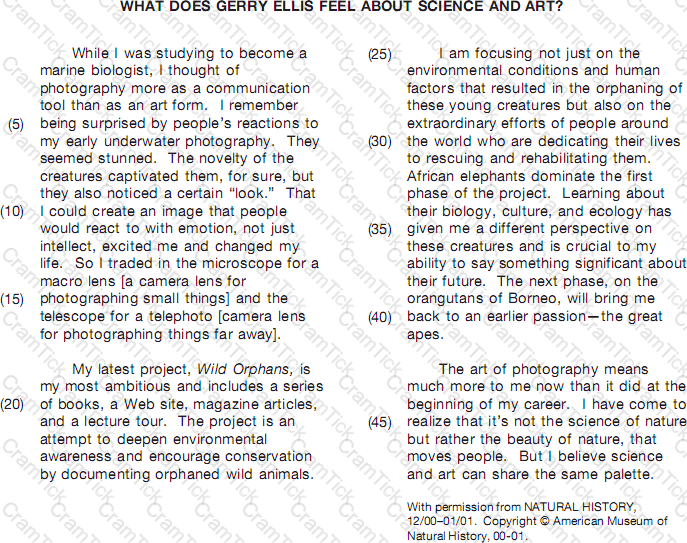
-- Exhibit --
Gerry Ellis says that the next phase of Wild Orphans will be “on the orangutans of Borneo” (lines 38–39). What does Gerry Ellis also say in this excerpt that leads the reader to understand that he has worked with great apes before?
-- Exhibit–
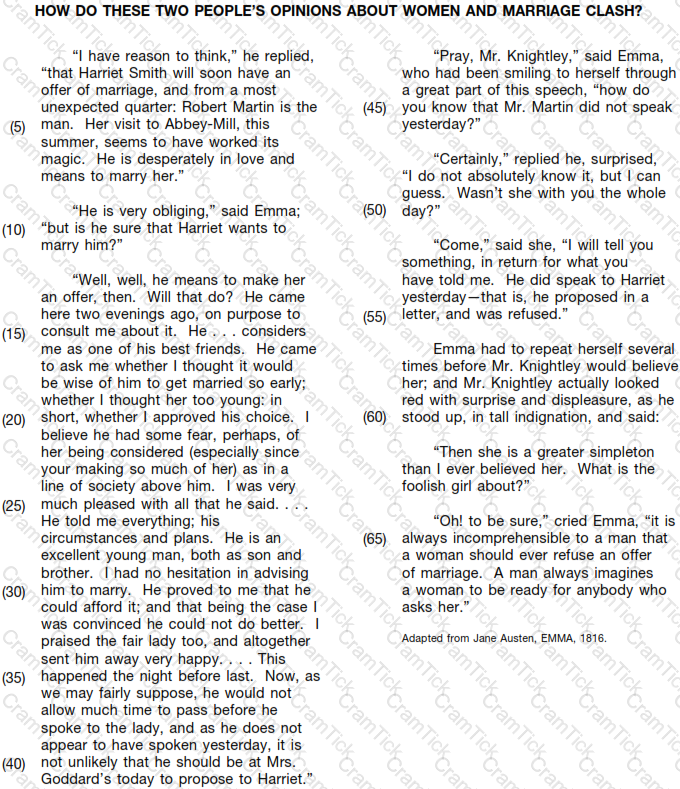
-- Exhibit --
How does Mr. Knightley treat the prospect of a marriage between Robert Martin and Harriet?
-- Exhibit–
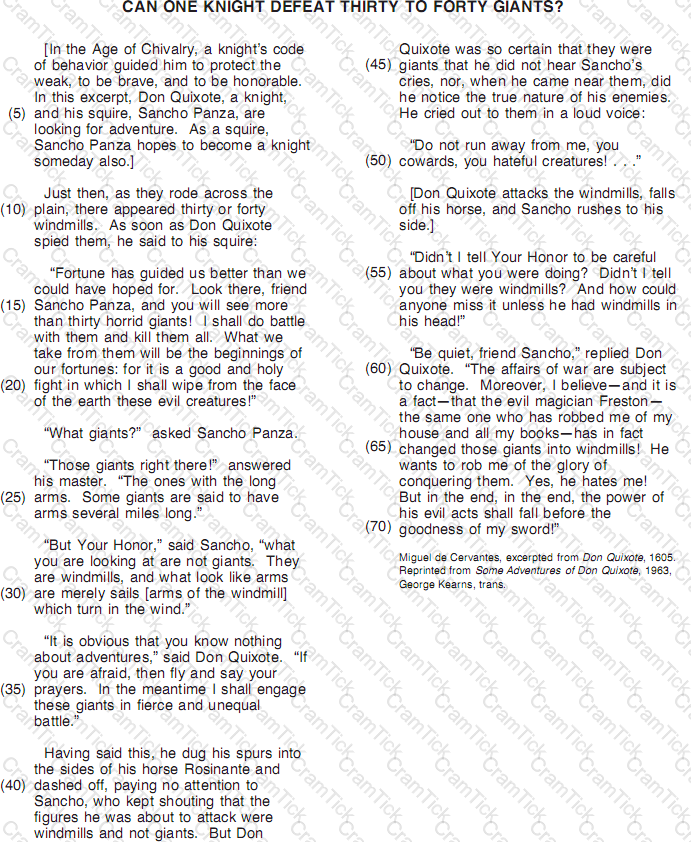
-- Exhibit --
According to the excerpt, how is a knight’s honor confirmed?
-- Exhibit–
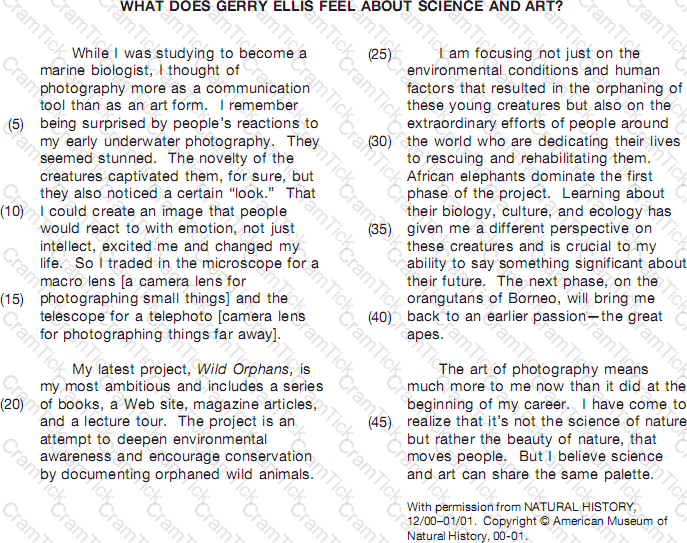
-- Exhibit --
Gerry Ellis was originally studying to become a “marine biologist” (line 2). What is a marine biologist?
-- Exhibit–
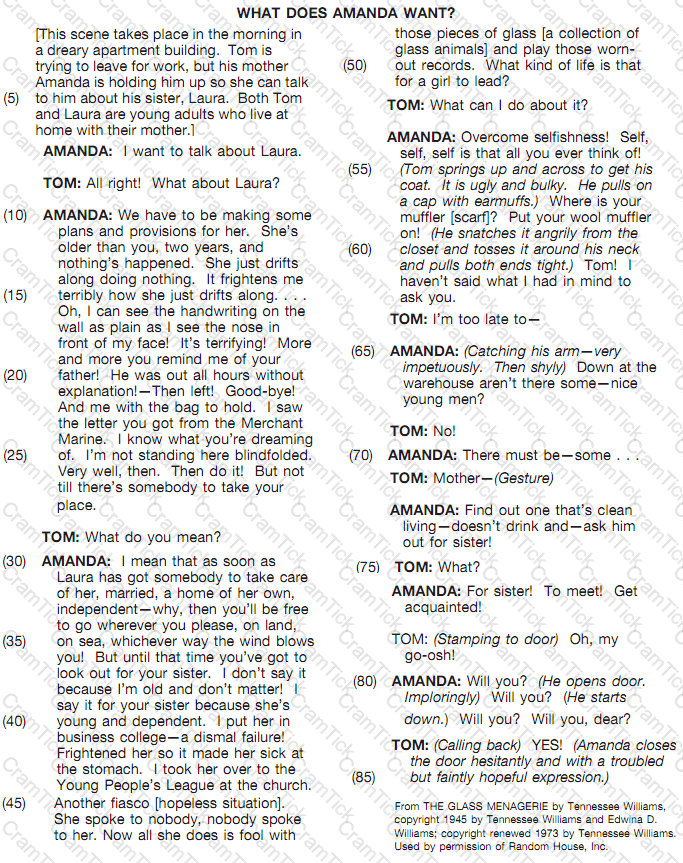
-- Exhibit --
Which of the following best represents Amanda’s belief concerning young women?
-- Exhibit–
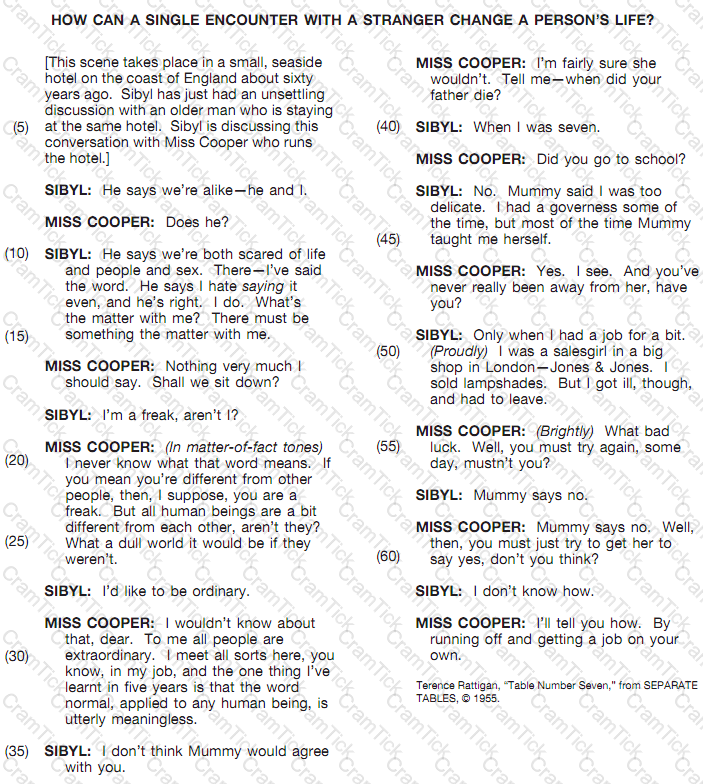
-- Exhibit --
Earlier in the play, the reader learns that Sibyl is 33 years old. How does this additional information affect the way the reader understands Sibyl's problem?
Exhibit:
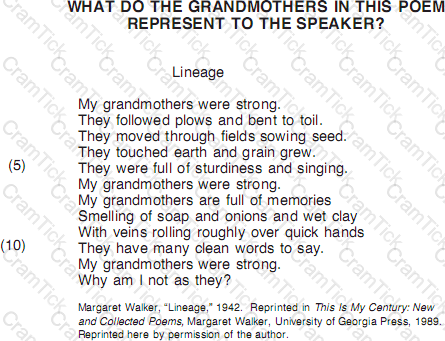
What is suggested about the grandmothers in the line “With veins rolling roughly over quick hands” (line 9)?
-- Exhibit–
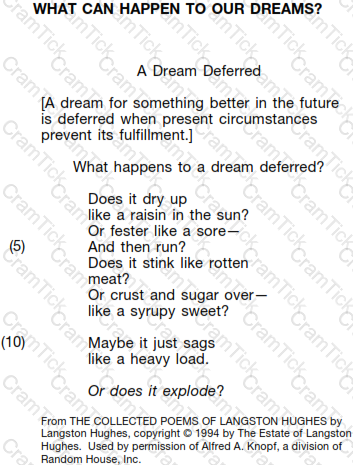
-- Exhibit --
Harlem is an area of New York City known for its African American and Latino cultures. Langston Hughes knew this area well.
How might a teacher in Harlem today use this poem to inspire young children?
GED Reading | GED-Reading Questions Answers | GED-Reading Test Prep | GED Reasoning Through Language Arts Questions PDF | GED-Reading Online Exam | GED-Reading Practice Test | GED-Reading PDF | GED-Reading Test Questions | GED-Reading Study Material | GED-Reading Exam Preparation | GED-Reading Valid Dumps | GED-Reading Real Questions | GED Reading GED-Reading Exam Questions


